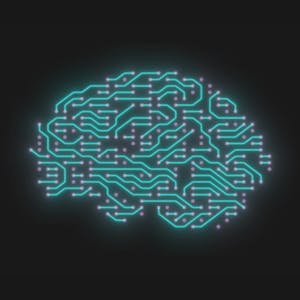AI Workflow: Data Analysis and Hypothesis Testing
About this Course
This is the second course in the IBM AI Enterprise Workflow Certification specialization. You are STRONGLY encouraged to complete these courses in order as they are not individual independent courses, but part of a workflow where each course builds on the previous ones. In this course you will begin your work for a hypothetical streaming media company by doing exploratory data analysis (EDA). Best practices for data visualization, handling missing data, and hypothesis testing will be introduced to you as part of your work. You will learn techniques of estimation with probability distributions and extending these estimates to apply null hypothesis significance tests. You will apply what you learn through two hands on case studies: data visualization and multiple testing using a simple pipeline. By the end of this course you should be able to: 1. List several best practices concerning EDA and data visualization 2. Create a simple dashboard in Watson Studio 3. Describe strategies for dealing with missing data 4. Explain the difference between imputation and multiple imputation 5. Employ common distributions to answer questions about event probabilities 6. Explain the investigative role of hypothesis testing in EDA 7. Apply several methods for dealing with multiple testing Who should take this course? This course targets existing data science practitioners that have expertise building machine learning models, who want to deepen their skills on building and deploying AI in large enterprises. If you are an aspiring Data Scientist, this course is NOT for you as you need real world expertise to benefit from the content of these courses. What skills should you have? It is assumed that you have completed Course 1 of the IBM AI Enterprise Workflow specialization and have a solid understanding of the following topics prior to starting this course: Fundamental understanding of Linear Algebra; Understand sampling, probability theory, and probability distributions; Knowledge of descriptive and inferential statistical concepts; General understanding of machine learning techniques and best practices; Practiced understanding of Python and the packages commonly used in data science: NumPy, Pandas, matplotlib, scikit-learn; Familiarity with IBM Watson Studio; Familiarity with the design thinking process.Created by: IBM

Related Online Courses
The Advanced Kubernetes - Securing, Monitoring, and Scaling Kubernetes Clusters course is designed for individuals who want to gain expertise in securing, monitoring, and efficiently managing... more
The Palliative Care Always Capstone course is designed to let you test your knowledge about palliative and help others understand the value of palliative care, while showing your creative side. In... more
Dive into the transformative world of blockchain with our course, designed to navigate the complexities of digital currencies, smart contracts, and decentralized applications. Whether you\'re... more
This specialization is intended for aspiring game developers who want to learn how to develop games using GameMaker. GameMaker lets us develop games using both a visual programming (drag and drop)... more
Cloud computing is rapidly expanding into all areas of businesses, creating new and exciting career opportunities. These opportunities cover a broad range of roles, from developers and architects... more







